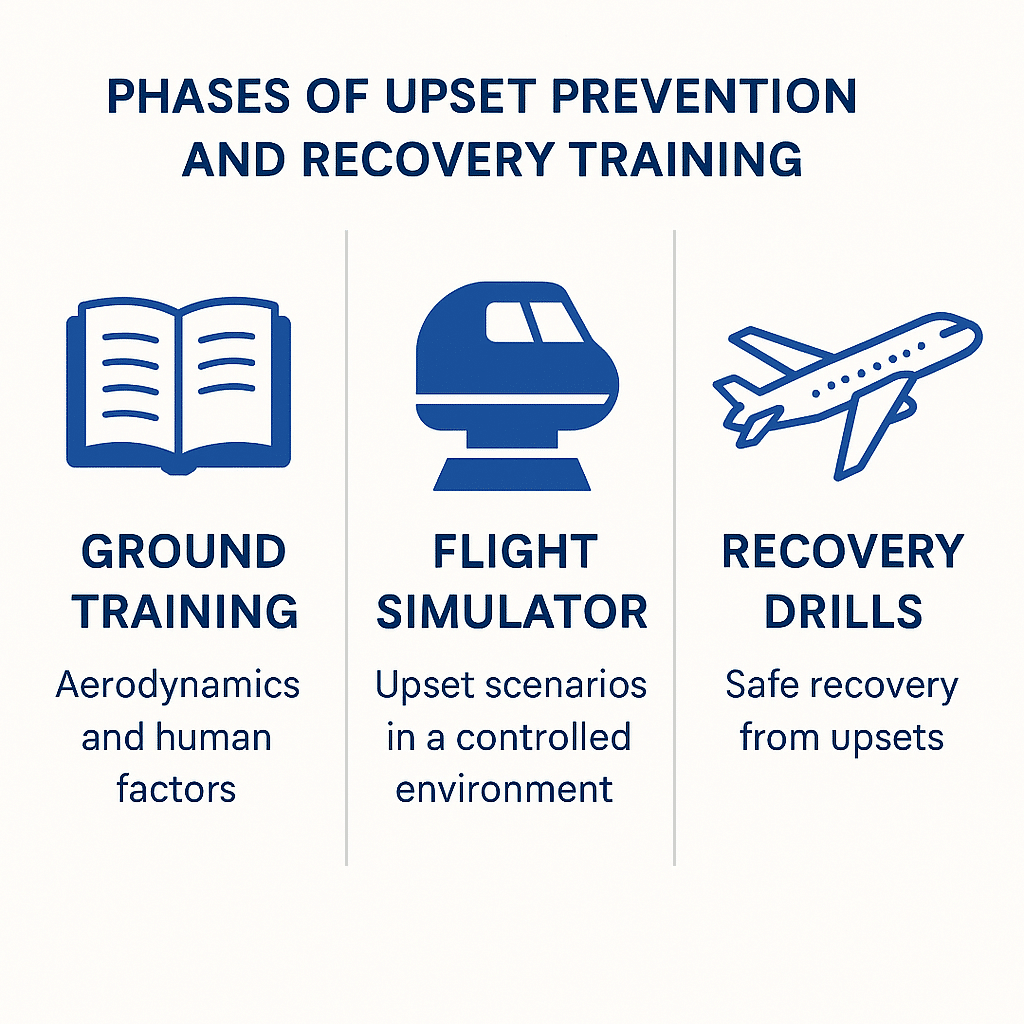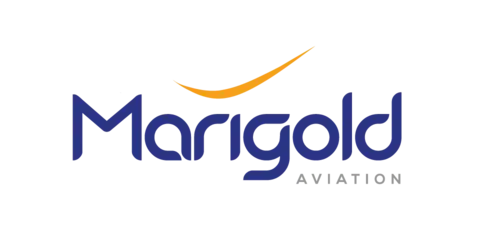Introduction
Loss of control in-flight (LOC‑I) remains a leading cause of fatal aviation accidents, contributing to over 25% of airline fatalities globally. That’s why Upset Prevention & Recovery Training (UPRT) is now mandatory under ICAO, EASA, and DGCA standards.
Whether you’re training under the IndiGo Cadet Pilot Program or pursuing a CPL/ATPL at Marigold Aviation, UPRT equips you with the skills to handle unexpected flight upsets and recover safely.
What Is UPRT?
UPRT is a structured training program combining academic theory and practical simulator or aircraft training to help pilots prevent, recognize, and recover from abnormal attitudes or control excursion situations. It’s designed to teach pilots how to:
- Recognize aircraft upsets early
- Prevent unintentional flight deviations
- Recover safely if an upset occurs
An “aircraft upset” refers to an unintended pitch, bank, or airspeed condition that can lead to a loss of control. These may occur due to:
- Weather (wind shear, turbulence, microbursts)
- Pilot disorientation
- Mechanical failures
- Automation surprises
This training typically includes:
- Ground school on aerodynamics, human factors, and LOC-I causes.
- Simulator sessions to practice recovery techniques.
- For advanced programs, on-aircraft training in specialized planes may be required.
In India, the DGCA Operations Circular No. 06/2018 defines upset conditions such as pitches beyond ±25° or bank angles over 45°, and mandates FSTD‑based UPRT practice.
Why Is UPRT Crucial for Pilots?
1. Addressing LOC-I Risks
Loss of control remains the top cause of commercial flight incidents. UPRT trains pilots to detect and correct upsets before they escalate.
2. Building Psychological Resilience
UPRT exposes pilots to the “startle factor” and high G‑forces, enhancing situational awareness and decision-making under pressure.
3. DGCA & ICAO UPRT Requirements
As per DGCA Civil Aviation Requirements (CAR) Section 7, Series D, Part I, UPRT is now mandatory for all pilots undergoing:
- Initial CPL Training
- Type Rating Training
- Airline Induction Programs
UPRT in India must include both theoretical and practical components using simulators or aerobatic aircraft, depending on training stage. The program aligns with ICAO Doc 10011 and EASA FCL.745.A standards.
UPRT Training Structure

1. Academic Training
Ground classes cover flight dynamics, LOC-I threats, aerodynamics, human factors, and accident case studies.
2. Simulator Training (FSTD)
Experience scenario-based recovery using trained instructors. Techniques include the UPRT mnemonic: Push → Roll → Thrust, Spiral dives and overbanked attitudes, Nose-high and nose-low recoveries.
3. Advanced/Upright On-Aircraft Training
In some programs, pilots train in aerobatic or UPRT-capable aircraft to apply recovery techniques under real G-forces .
At Marigold Aviation, cadets are introduced to UPRT progressively—starting with fundamentals in PPL/CPL stages and advancing into high-fidelity scenarios during airline induction simulations.
UPRT Techniques Every Pilot Should Know
A standard UPRT recovery sequence (mnemonic: UPRT) includes:
- Upset – Recognize abnormal flight attitude.
- Push – Reduce pitch to avoid stall.
- Roll – Align wings with horizon (shortest path).
- Thrust – Adjust power to stabilize and return to safe flight.

Practice these in both simulator and real aircraft environments to ensure muscle memory and rapid response.
Why UPRT Matters for Student Pilots
UPRT isn’t just for airline pilots. For aspiring cadets and fresh CPL holders, it’s a critical building block of safety mindset.
In fact, ICAO’s Global Aviation Safety Plan highlights LOC-I as the #1 threat to commercial aviation over the past decade. UPRT prepares cadets to:
- Manage surprise and startle effects
- Build situational awareness
- Maintain control under pressure
✍🏽 Looking to deepen your understanding of instrumentation during upsets? Read our article on the ILS Instrument Landing System—a crucial aid during unstable approaches.
How Marigold Aviation Implements UPRT
At Marigold Aviation, our cadets receive integrated UPRT training through:
- Classroom sessions on LOC-I theory and human factors.
- FSTD-based recovery drills in our full-flight simulators.
- Optional advanced training in UPRT-capable light aircraft to simulate real G-forces.
We exceed DGCA standards, preparing cadets for scenarios beyond those covered in Type Rating courses.
Conclusion
As a pilot, it’s not about if you’ll face an aircraft upset—it’s about when. UPRT equips you to handle these challenges confidently and correctly, making it one of the most valuable components of your aviation education.
At Marigold Aviation, we ensure that cadets in the IndiGo Cadet Pilot Program undergo ICAO-compliant UPRT in state-of-the-art simulators, setting them up for a safe, successful aviation career.
Ready to take the next step?
Start your journey toward the skies with India’s trusted aviation training partner. Learn more about our IndiGo Cadet Pilot Program.






